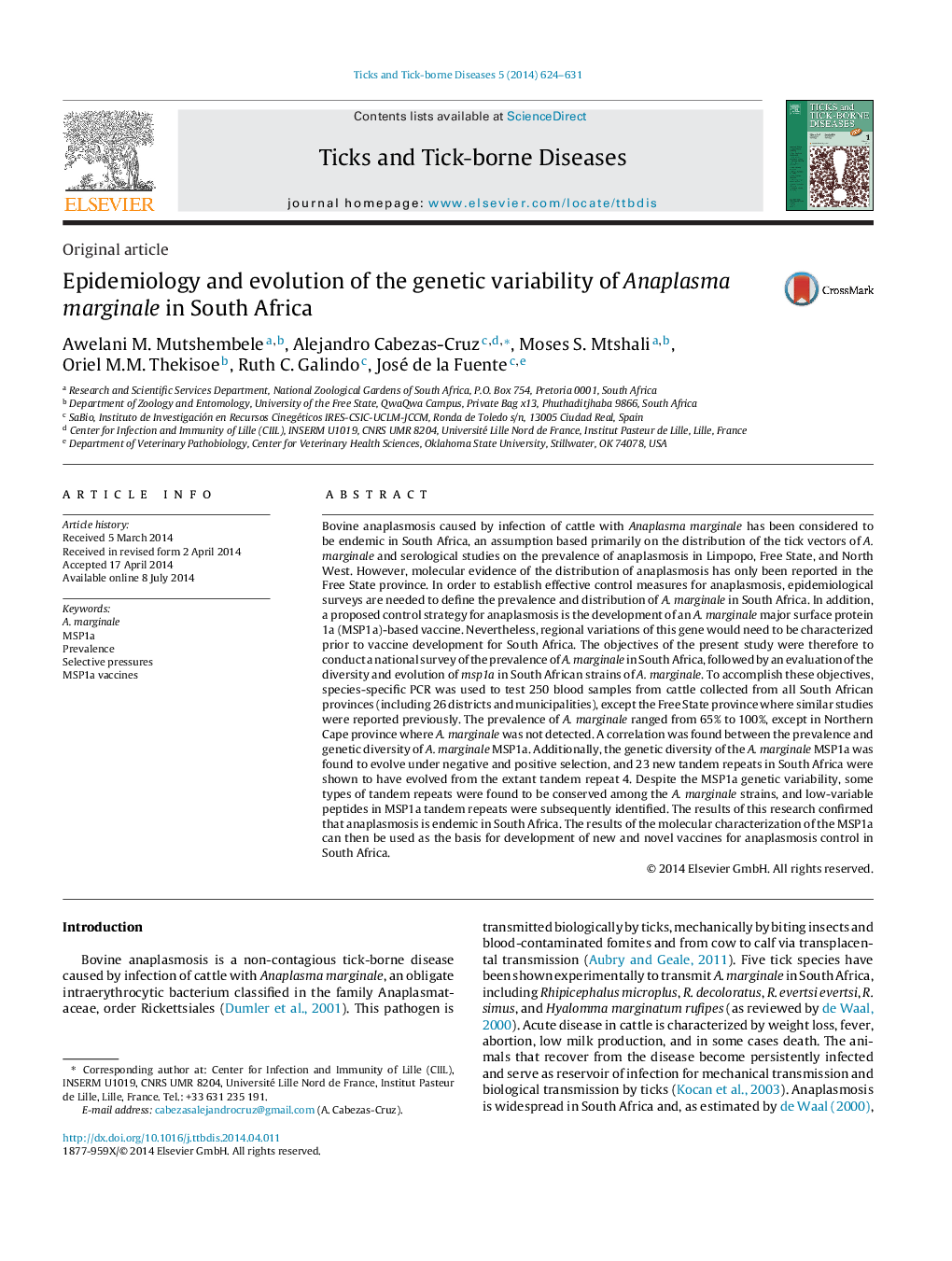| Article ID | Journal | Published Year | Pages | File Type |
|---|---|---|---|---|
| 2473962 | Ticks and Tick-borne Diseases | 2014 | 8 Pages |
Bovine anaplasmosis caused by infection of cattle with Anaplasma marginale has been considered to be endemic in South Africa, an assumption based primarily on the distribution of the tick vectors of A. marginale and serological studies on the prevalence of anaplasmosis in Limpopo, Free State, and North West. However, molecular evidence of the distribution of anaplasmosis has only been reported in the Free State province. In order to establish effective control measures for anaplasmosis, epidemiological surveys are needed to define the prevalence and distribution of A. marginale in South Africa. In addition, a proposed control strategy for anaplasmosis is the development of an A. marginale major surface protein 1a (MSP1a)-based vaccine. Nevertheless, regional variations of this gene would need to be characterized prior to vaccine development for South Africa. The objectives of the present study were therefore to conduct a national survey of the prevalence of A. marginale in South Africa, followed by an evaluation of the diversity and evolution of msp1a in South African strains of A. marginale. To accomplish these objectives, species-specific PCR was used to test 250 blood samples from cattle collected from all South African provinces (including 26 districts and municipalities), except the Free State province where similar studies were reported previously. The prevalence of A. marginale ranged from 65% to 100%, except in Northern Cape province where A. marginale was not detected. A correlation was found between the prevalence and genetic diversity of A. marginale MSP1a. Additionally, the genetic diversity of the A. marginale MSP1a was found to evolve under negative and positive selection, and 23 new tandem repeats in South Africa were shown to have evolved from the extant tandem repeat 4. Despite the MSP1a genetic variability, some types of tandem repeats were found to be conserved among the A. marginale strains, and low-variable peptides in MSP1a tandem repeats were subsequently identified. The results of this research confirmed that anaplasmosis is endemic in South Africa. The results of the molecular characterization of the MSP1a can then be used as the basis for development of new and novel vaccines for anaplasmosis control in South Africa.
